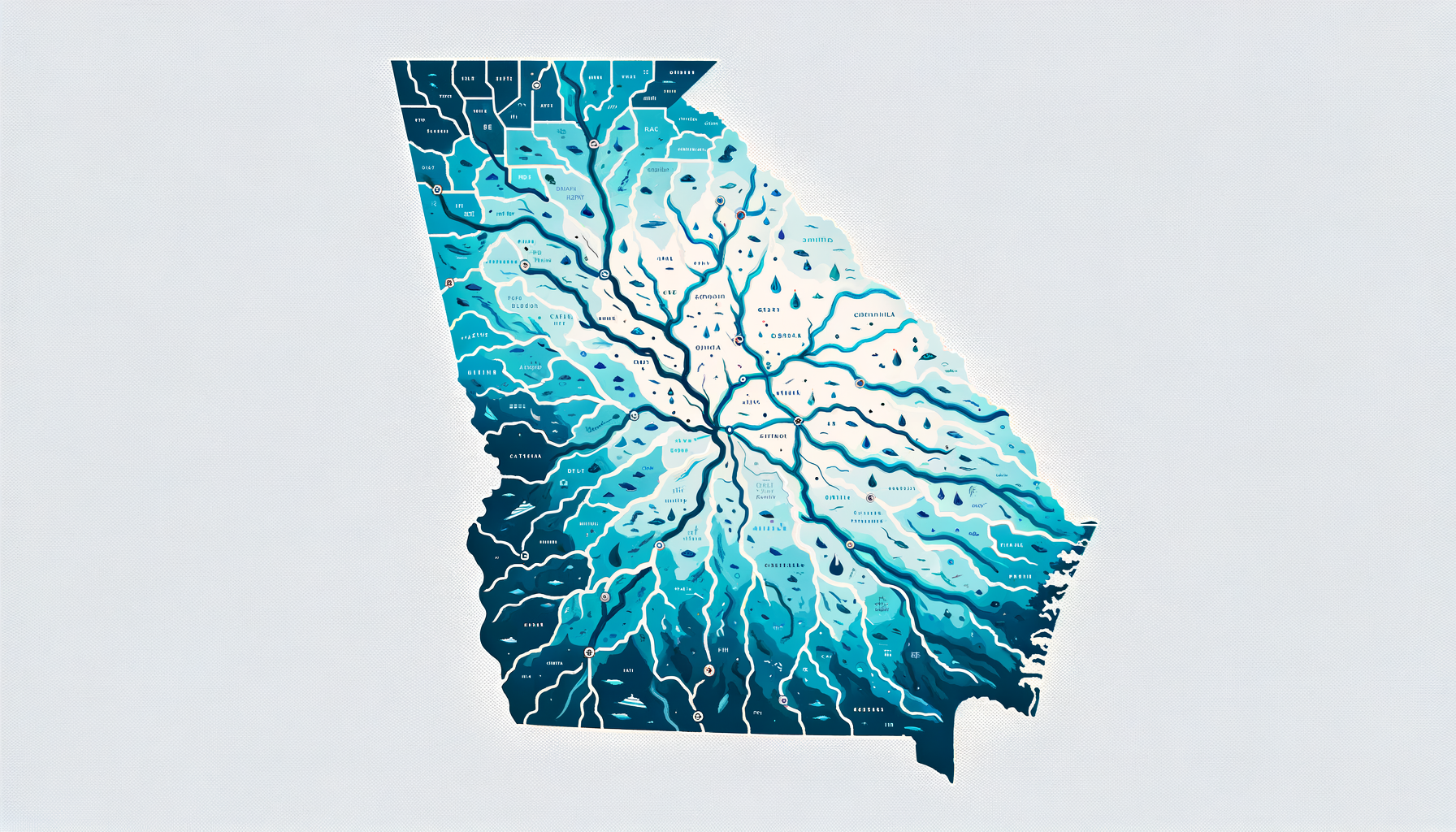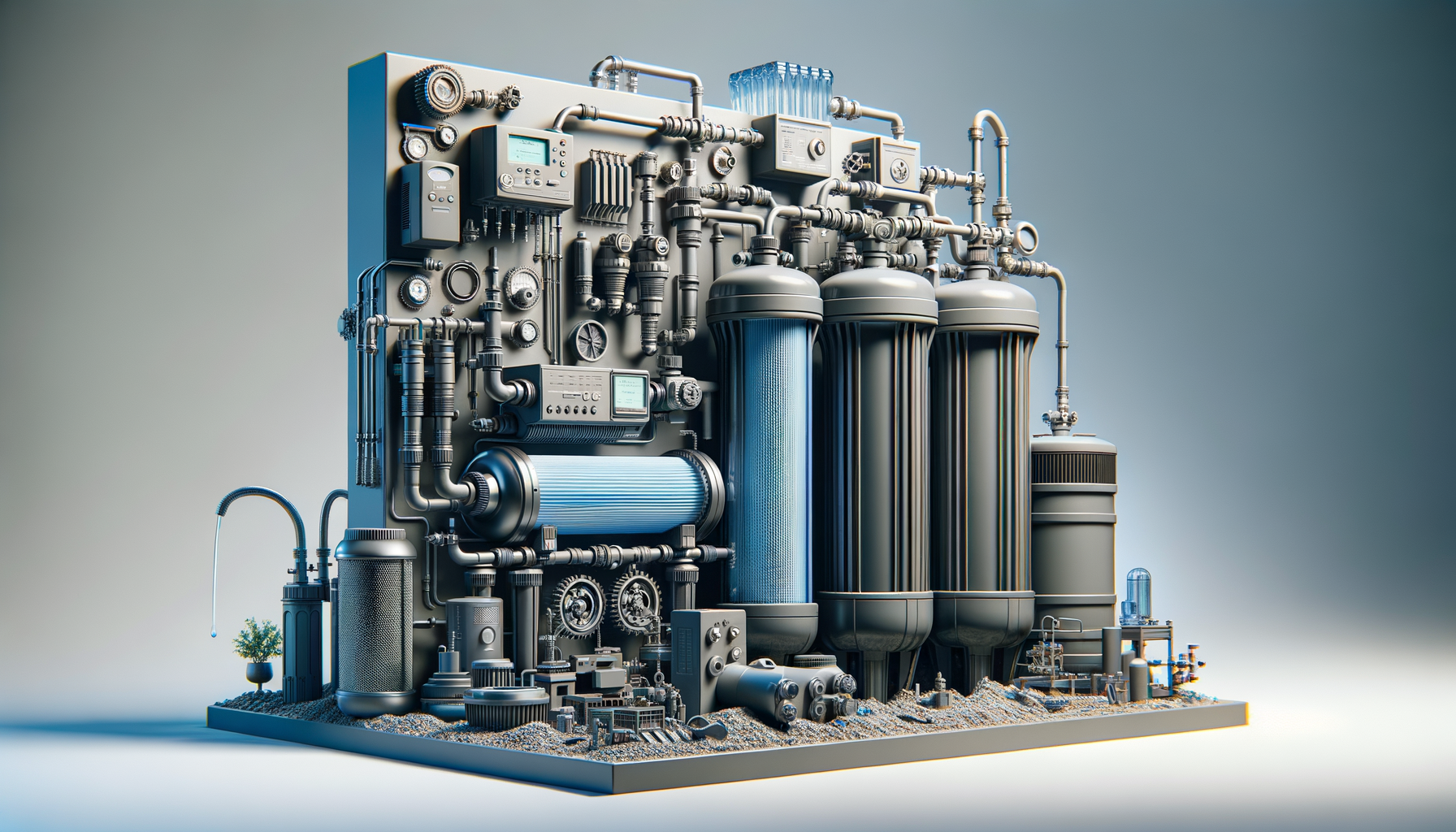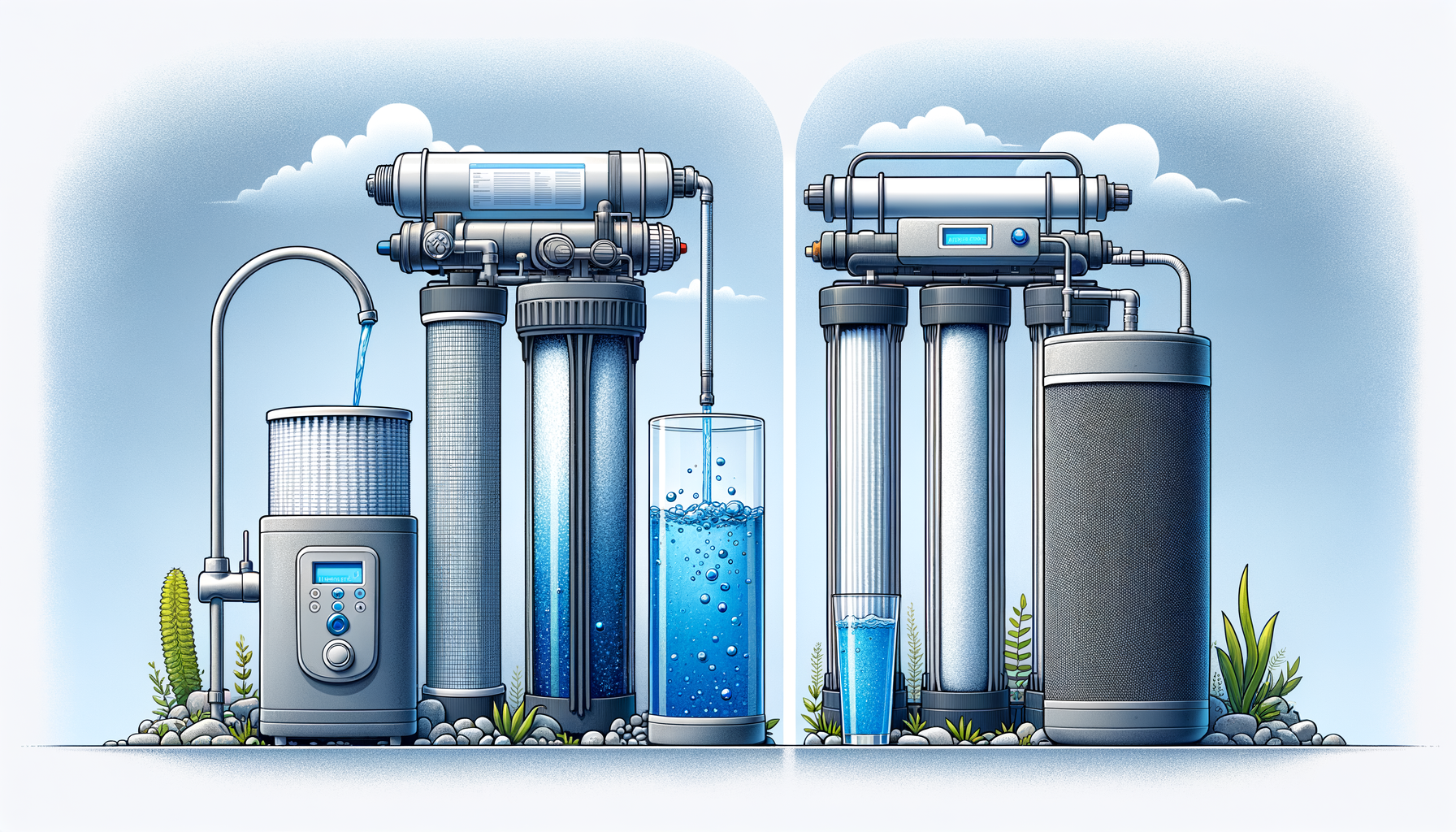Comprehensive Guide to Water Quality in Georgia State: Contaminants, Issues, and Water Filtration Solutions
by Ryan Moreau / updated February 19th, 2025
Georgia is a state rich in water resources—from the mighty Chattahoochee River and serene Lake Lanier to the extensive groundwater aquifers that sustain its agricultural heartlands. Despite this abundance, the state grapples with complex water quality challenges stemming from rapid urbanization, agricultural runoff, industrial activities, and aging infrastructure. In this comprehensive guide, we delve into the common contaminants in Georgia’s water, regional water quality challenges, and effective filtration solutions. Start by using our Water Quality Tool to get a customized analysis of your local water conditions.

Overview of Georgia’s Water Sources
Georgia’s water supply is as varied as its landscapes. Key sources include:
- Rivers: Major rivers like the Chattahoochee, Savannah, and Flint Rivers provide essential water for drinking, agriculture, and industry.
- Lakes and Reservoirs: Lakes such as Lake Lanier, Lake Allatoona, and Lake Hartwell serve as critical water supplies for metropolitan areas and recreational hubs.
- Groundwater Aquifers: The Floridan and Claiborne Aquifers are vital for rural communities, supplying water for domestic use and irrigation.
- Coastal Estuaries: In coastal regions, estuaries and wetlands play a significant role in maintaining ecological balance and providing water resources.
Managing water quality across these diverse sources requires diligent monitoring and innovative treatment solutions, particularly in the face of environmental pressures and population growth.
Common Water Quality Contaminants in Georgia
Georgia’s water sources may contain a variety of contaminants due to agricultural practices, industrial operations, and natural geological formations. To better understand what might affect your area, start with our Water Quality Tool and then review these common issues:
1. Nitrates
Agricultural runoff is a significant concern in Georgia, particularly in farming regions. Excessive use of fertilizers leads to elevated nitrate levels in groundwater and surface water. High nitrate levels are especially dangerous for infants, causing conditions like methemoglobinemia or “blue baby syndrome.”
Water Filtration Options for Nitrates: Reverse Osmosis Water Filters
2. Arsenic
Natural deposits of arsenic-bearing minerals can leach into groundwater in certain areas of Georgia. Chronic exposure to arsenic is linked to serious health issues such as skin lesions, cardiovascular disease, and various forms of cancer.
Water Filtration Options for Arsenic: Reverse Osmosis Water Filters, Activated Alumina Filters
3. Lead and Copper
Aging infrastructure in older cities like Atlanta can lead to the leaching of lead and copper into the water supply. Corrosion of old pipes is a primary source, posing significant risks to children’s development and overall public health.
Water Filtration Options for Lead and Copper: Reverse Osmosis Water Filters, Under-Sink Water Filters
4. Microbial Contaminants
Private wells, especially in rural Georgia, may be vulnerable to bacterial contamination due to septic system failures or agricultural runoff. Pathogens like E. coli and Giardia can cause severe gastrointestinal illnesses.
Water Filtration Options for Microbial Contaminants: UV Water Purifiers, Reverse Osmosis Systems with UV Add-Ons
5. Per- and Polyfluoroalkyl Substances (PFAS)
PFAS have been detected in areas near industrial sites and military bases in Georgia, stemming from manufacturing processes and the use of firefighting foams. Long-term exposure is associated with immune system suppression and hormonal disruptions. Detailed information is available at the EPA PFAS Tools and our PFAS Contamination Guide.
Water Filtration Options for PFAS: Activated Carbon Water Filters, High-Pressure Reverse Osmosis Systems
6. Pesticides and Herbicides
The extensive agricultural activities in Georgia contribute to the presence of pesticides and herbicides like atrazine and glyphosate in water supplies. These chemicals can have endocrine-disrupting effects and other chronic health impacts.
Water Filtration Options for Pesticides and Herbicides: Activated Carbon Filters, Whole House Filtration Systems
7. Industrial Contaminants
Industrial operations, particularly in regions around Savannah and Augusta, can introduce contaminants like mercury, cadmium, and various organic compounds into water sources. These pollutants can have severe neurological and reproductive effects.
Water Filtration Options for Industrial Contaminants: Reverse Osmosis Systems, Distillation Systems
8. Fluoride
While fluoride is intentionally added to many municipal water supplies to promote dental health, some areas in Georgia may experience naturally high fluoride levels. Excessive fluoride intake can lead to dental and skeletal fluorosis.
Water Filtration Options for Fluoride: Reverse Osmosis Systems, Activated Alumina Filters
9. Radon
In certain regions, particularly in northern Georgia, radon gas can dissolve into groundwater from natural uranium deposits. Radon is a carcinogenic radioactive gas, and its presence in water can pose inhalation risks when using water for showering and other household activities.
Water Filtration Options for Radon: Aeration Systems, Granular Activated Carbon Filters
Regional Water Quality Challenges in Georgia
Georgia’s distinct regions each face unique water quality challenges. According to the EPA and the Georgia Environmental Protection Division (EPD), key issues include:
1. Metro Atlanta: Urban Runoff and Aging Infrastructure
Rapid urbanization in Atlanta has led to increased stormwater runoff, carrying pollutants into rivers and lakes. Additionally, older neighborhoods may have aging pipes, resulting in lead and copper contamination.
2. Agricultural Regions: Nutrient Pollution
Areas with intensive farming, such as Southwest Georgia, struggle with nutrient pollution from fertilizers and animal waste. This leads to elevated nitrates and the growth of harmful algal blooms in water bodies (EPA – Nutrient Pollution).
3. Coastal Georgia: Saltwater Intrusion
Excessive groundwater withdrawal in coastal regions like Savannah and Brunswick has caused saltwater intrusion into freshwater aquifers, affecting the taste and usability of the water.
4. Industrial Corridors: Chemical Contaminants
Industrial activities along the Savannah River and other corridors have led to contamination with chemicals like PCBs and heavy metals, impacting both water quality and aquatic life.
General Water Characteristics in Georgia
Beyond specific contaminants, Georgia’s diverse geology and climate contribute to unique water characteristics. Understanding these traits helps in selecting the right treatment solutions:
1. Water Hardness
Water hardness varies across Georgia. In northern regions and areas tapping into groundwater sources, water tends to be harder due to higher mineral content like calcium and magnesium. Hard water can lead to scale buildup in plumbing and reduce the efficiency of water heaters and appliances.
For households experiencing hard water, water softeners are recommended. If you’re unsure whether you need a water softener or which type fits your family’s needs, try our Water Softener Calculator for personalized guidance.
2. Acidic Water Conditions
In some parts of Georgia, especially in the Piedmont region, water sourced from local wells can be slightly acidic due to the natural geology. Acidic water (low pH) can corrode metal pipes, leading to the leaching of metals like lead and copper.
- Corrosion Risks: Acidic water accelerates the deterioration of plumbing systems.
- Health Concerns: Metal leaching can contaminate drinking water, posing health risks.
Installing an acid neutralizing filter can help stabilize pH levels and protect your plumbing infrastructure.
3. Iron and Manganese
Groundwater in Georgia may contain elevated levels of iron and manganese. While not hazardous to health, these minerals can discolor water, stain laundry and fixtures, and impart a metallic taste.
- Aesthetic Issues: Yellow, orange, or brown discoloration indicates high iron content.
- Taste and Odor: Elevated manganese can cause a bitter taste and black or dark purple stains.
To address these issues, consider using a specialized iron filter or a comprehensive whole house filtration system.
Utilizing the Water Quality Tool for Georgia Residents
Gaining insight into your local water quality is crucial for ensuring safe and clean water in your home. Our Water Quality Tool empowers Georgia residents to:
- Input their zip code to receive detailed information about local water sources
- Access data on common contaminants in both public and private water supplies
- Obtain personalized recommendations for filtration systems tailored to your specific water quality challenges
Recommended Filtration Solutions for Common Georgia Contaminants
Based on the prevalent contaminants identified in Georgia’s water sources, the following filtration systems are highly recommended:
1. Reverse Osmosis Systems
Reverse Osmosis Systems provide comprehensive removal of nitrates, arsenic, lead, fluoride, and other dissolved contaminants. These systems are suitable for under-sink installations and can be scaled for whole-house applications.
2. Activated Carbon Filters
Activated Carbon Filters are effective at removing organic chemicals, pesticides, herbicides, and improving taste and odor. They are ideal for municipal water supplies and can be used as standalone systems or combined with other filtration technologies.
3. UV Water Purifiers
UV Water Purifiers neutralize bacteria, viruses, and other microorganisms without adding chemicals to the water. They are an excellent choice for homes using well water or in areas prone to microbial contamination.
4. Water Softeners
Water Softeners address issues related to hard water, extending the lifespan of appliances and improving soap efficiency. They are particularly beneficial in regions with high mineral content in the water.
Local Water Testing Services in Georgia
Accurate water testing is the first step toward identifying and addressing water quality issues. We recommend using SimpleLab for comprehensive water quality analysis. Their user-friendly kits provide in-depth lab reports, enabling you to make informed decisions about the most effective filtration solutions for your home.
Case Studies: Addressing Water Quality Issues in Georgia
Real-world examples demonstrate how various water quality challenges in Georgia are being mitigated through community efforts and advanced filtration technologies:
1. Atlanta’s Lead Pipe Replacement Initiative
The City of Atlanta has launched programs to replace aging lead service lines to reduce lead exposure. These efforts, combined with public education on in-home filtration, have significantly decreased lead levels in drinking water.
2. Agricultural Best Management Practices in Southwest Georgia
Farmers in regions like the Flint River Basin are adopting Best Management Practices (BMPs) to minimize nutrient runoff. Techniques such as buffer strips and controlled fertilizer application have reduced nitrate contamination in local water sources.
3. Coastal Georgia’s Response to Saltwater Intrusion
Communities along the coast are implementing measures to combat saltwater intrusion, including reducing groundwater extraction and exploring alternative water supplies. Advancements in desalination technology are also being considered as long-term solutions.
4. Industrial Pollution Control in Savannah
Strict regulations and improved industrial wastewater treatment have led to a decrease in chemical contaminants entering the Savannah River. Partnerships between industries and environmental organizations are fostering sustainable practices.
Call to Action
Georgia’s diverse water sources—from the bustling urban centers to the tranquil rural landscapes—require proactive water quality management. Understanding your local water challenges and implementing effective filtration solutions is essential for safeguarding your household’s health.
Start by entering your zip code into our Water Quality Tool for a detailed analysis of your water supply. Then, explore our filter review articles to find the most effective system for your needs. Finally, confirm your water’s safety with comprehensive water testing services to ensure you have the clean, safe water your home deserves.






